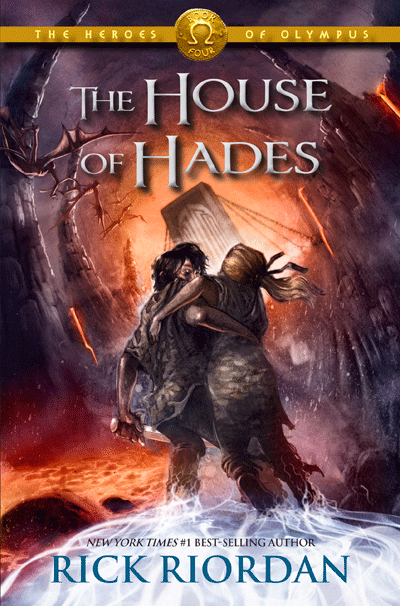“House of Hades” excites series fans
October 14, 2013
Author Rick Riordan recently released “House of Hades,” the fourth novel in the “Heroes of Olympus” series, a sequel series to the bestselling “Percy Jackson and the Olympians series.” At the end of the previous book, “The Mark of Athena,” protagonists Percy Jackson and his girlfriend Annabeth Chase fell into the deadly Pit of Tartarus while the Athena Parthenos statue was being rescued into the heroes’ flying ship, the Argo II.
The long-awaited novel continues the adventures of Percy and Annabeth in Tartarus and those of Hazel Levesque, Leo Valdez, Piper McLean, Frank Zhang, Jason Grace and Nico di Angelo on the Argo II as all of the heroes race towards the Doors of Death, the opening between the mortal world and the realm of the dead, which is heavily guarded by the evil goddess Gaea’s army of monsters. The challenges facing all of the heroes seem insurmountable, but can the teenage demigods succeed?
The novel was fast-paced and exciting, and certainly kept the pages turning. Riordan uses third-person narration focused on one individual character to masterfully navigate between characters and settings. Every chapter ends on a cliffhanger as the setting shifts to another character’s point of view, leaving the reader eager for more of the action.
Unfortunately, the shifting of the narration can leave the reader somewhat disoriented and confused. With so many main characters instrumental to the story, keeping track of the backstories of each one can be difficult. Additionally, in Riordan’s world all of the demigods have vivid dreams, and he sometimes switches into a character’s dream abruptly which can be even more confusing for the reader.
More confusion for the reader may result if he or she is not familiar with the Greek and Roman gods and goddesses. The gods often switch personalities between their Greek form and their Roman form, and the demigods take this in stride. A reader, however, that does not know that Ares and Mars are two different forms of the same god, for example, may misunderstand certain aspects of the storyline.
The end of “The Mark of Athena” left readers clamoring for the continuation of the story, specifically what happens to Percy and Annabeth after they fell into the pit. But the first four chapters, rather than focusing on them, is instead narrated from the point of view of one of the characters aboard the Argo II. This excessively draws out the cliffhanger so that the reader may want to race through the first four chapters or skip them altogether.
The book also references many of Percy’s previous adventures, not just those of the “Heroes of Olympus” series but also in Riordan’s first series starring Percy. “House of Hades” was certainly meant for avid fans of Riordan, not the average reader that would see this in a bookstore.
Fans of Riordan and of Percy’s previous adventures and anyone who felt jarred by the ending of “Mark of Athena” will enjoy the new addition to the series. “The House of Hades is a great lead-up to the final book in the “Heroes of Olympus” series, “The Blood of Olympus” which will be released in fall of 2014. All in all, the “House of Hades” is a book well worth reading for fans, but probably not a great read for other audiences.






